Cock-a-Doodle-Doo: 5 Reasons Why Roosters Crow
A rooster's internal clock signaling the start of the day is one famous reason he will crow.
Published July 1 2024, 4:02 p.m. ET
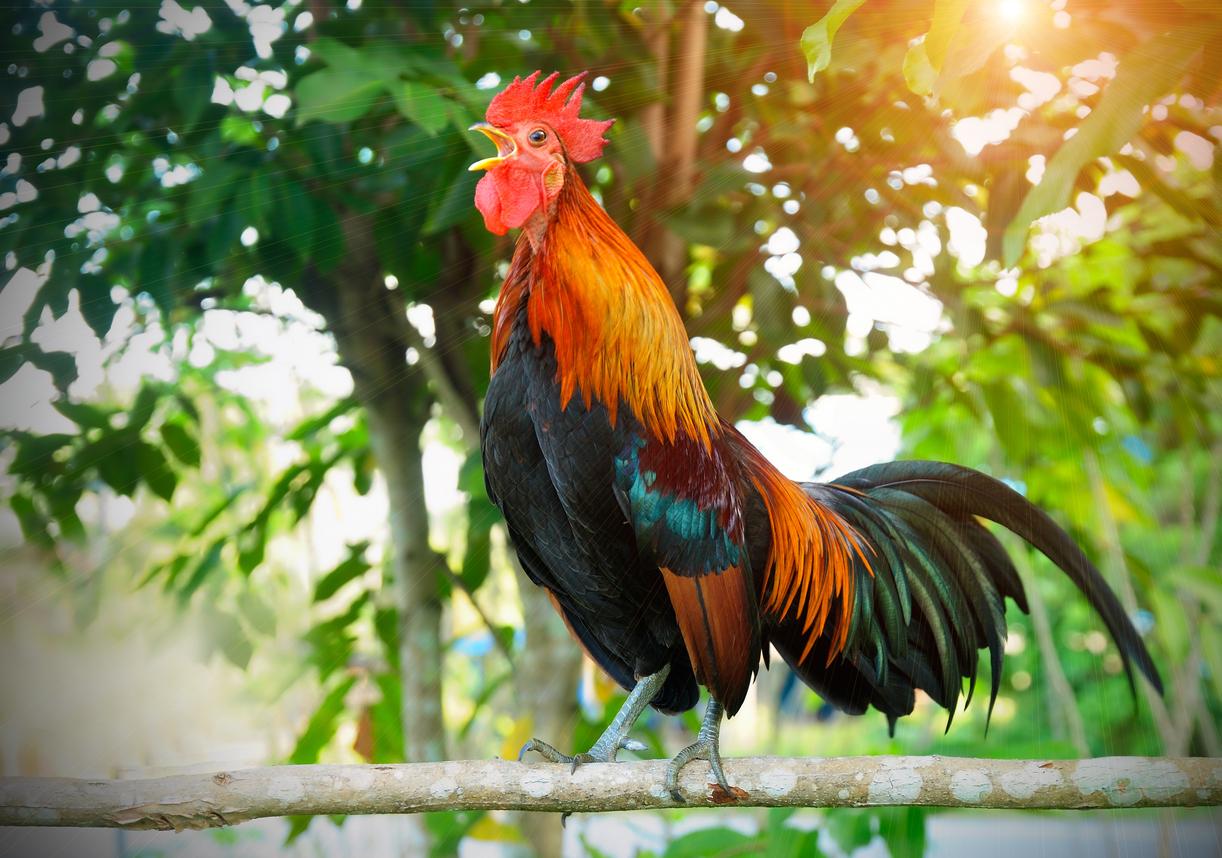
Whether you live near factory farms or next to a neighbor who keeps roosters and chickens in their backyard, chances are you've been awakened before your alarm by the sounds of a rooster crowing.
There are endless reasons for the noises any animal makes, from the typical — like a rooster crowing in the morning — to the unexpected.
Keep reading to learn about the reasons why roosters crow, what their crowing might signify, and why rooster communication styles are so much more humanlike, intelligent, nuanced, and wondrous than they receive credit for.
Roosters crow first thing in the morning.
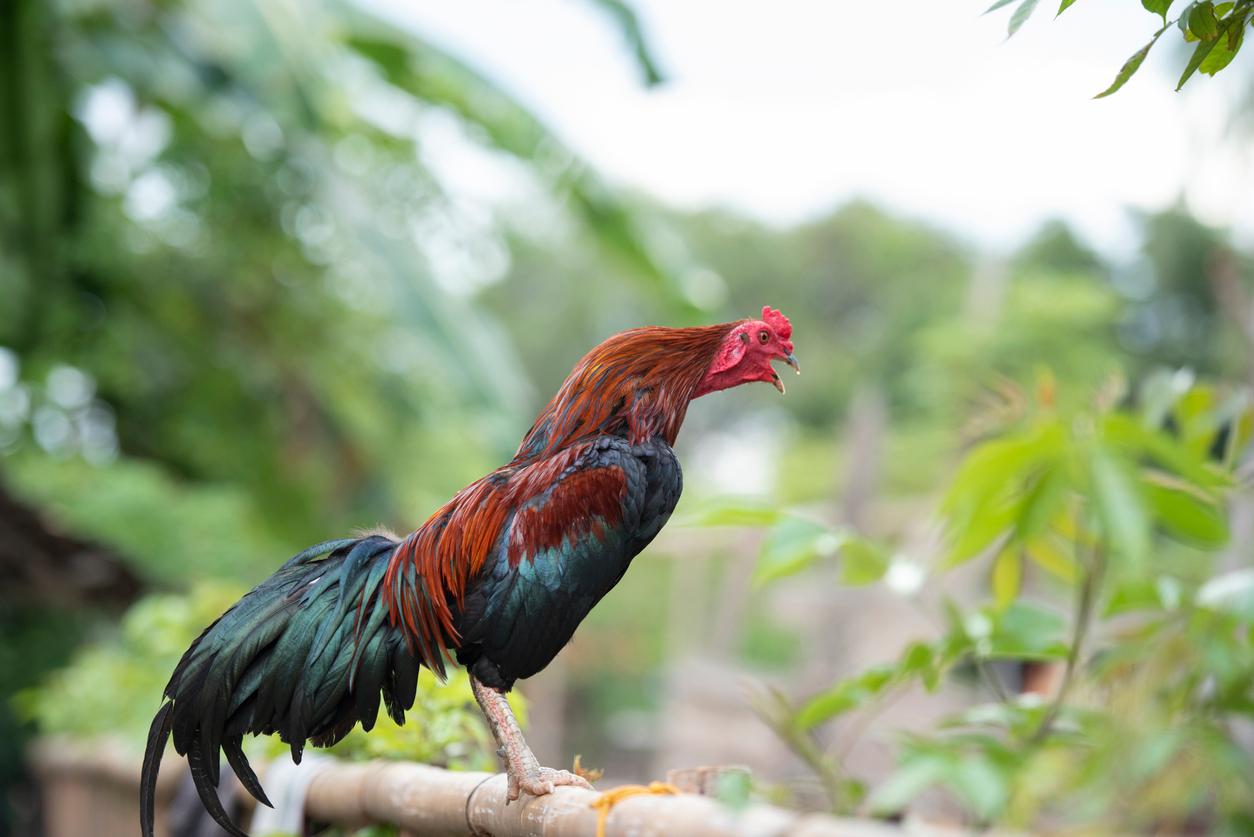
According to EarthSky, roosters — which refers to adult male chickens — crow because their internal clock is telling them to start the day. Roosters' circadian rhythms are such that they are awakened just before the rising of the sun, which affords them the opportunity to hunt for food.
This is perhaps the most popular and well-known reason why roosters crow, and why they sometimes serve as a de facto alarm clock for those in the area.
Roosters may crow if a predator approaches their flock.
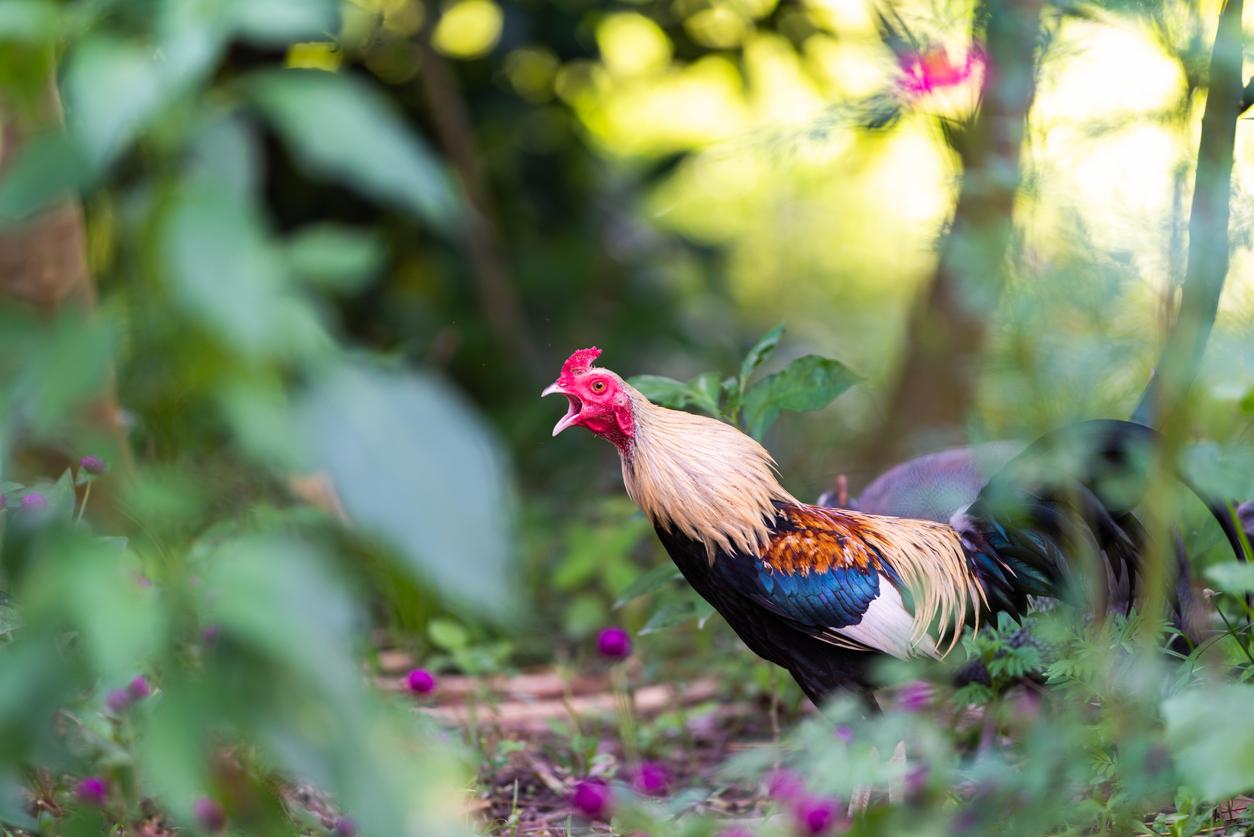
As The Old Farmers Almanac explains, roosters take pride in protecting their flock, hence their tendency to roam around the area in an effort to guard their kin. If a predator approaches, a rooster will crow to signal impending danger to his flock.
If sufficient boundaries exist for the flock to find safe haven from predators, the warning crow will afford the flock time to get to safety and away from the predator.
Young roosters will mimic the crow of other roosters.
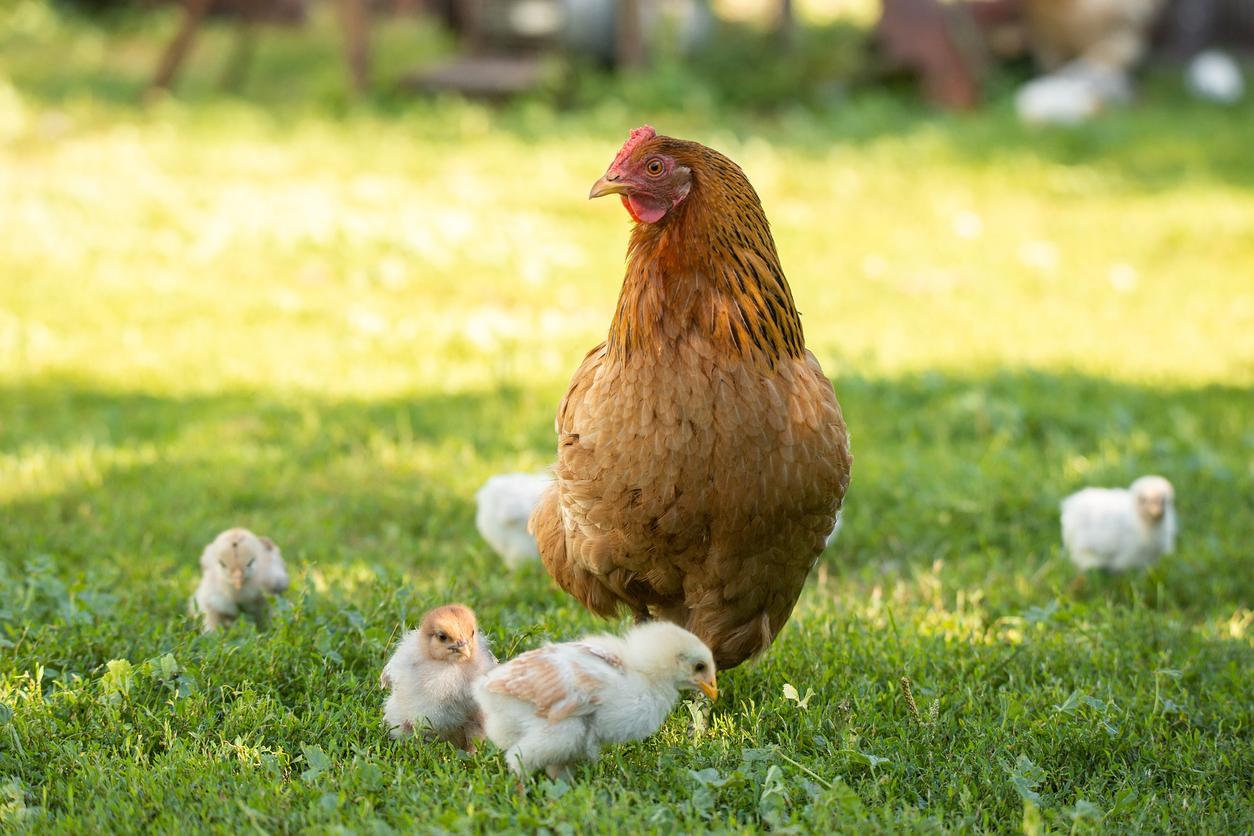
According to The Open Sanctuary Project, both hens and roosters who have not yet matured to adulthood crow. Young roosters, per the source, will imitate the crows of older roosters "until they come up with their own personal song."
Interestingly, a rooster's crow may be related to the length of their comb. If a rooster is still maturing into adulthood, it's possible his crow is still under construction, so to speak.
Roosters may be territorial and crow to warn other roosters.
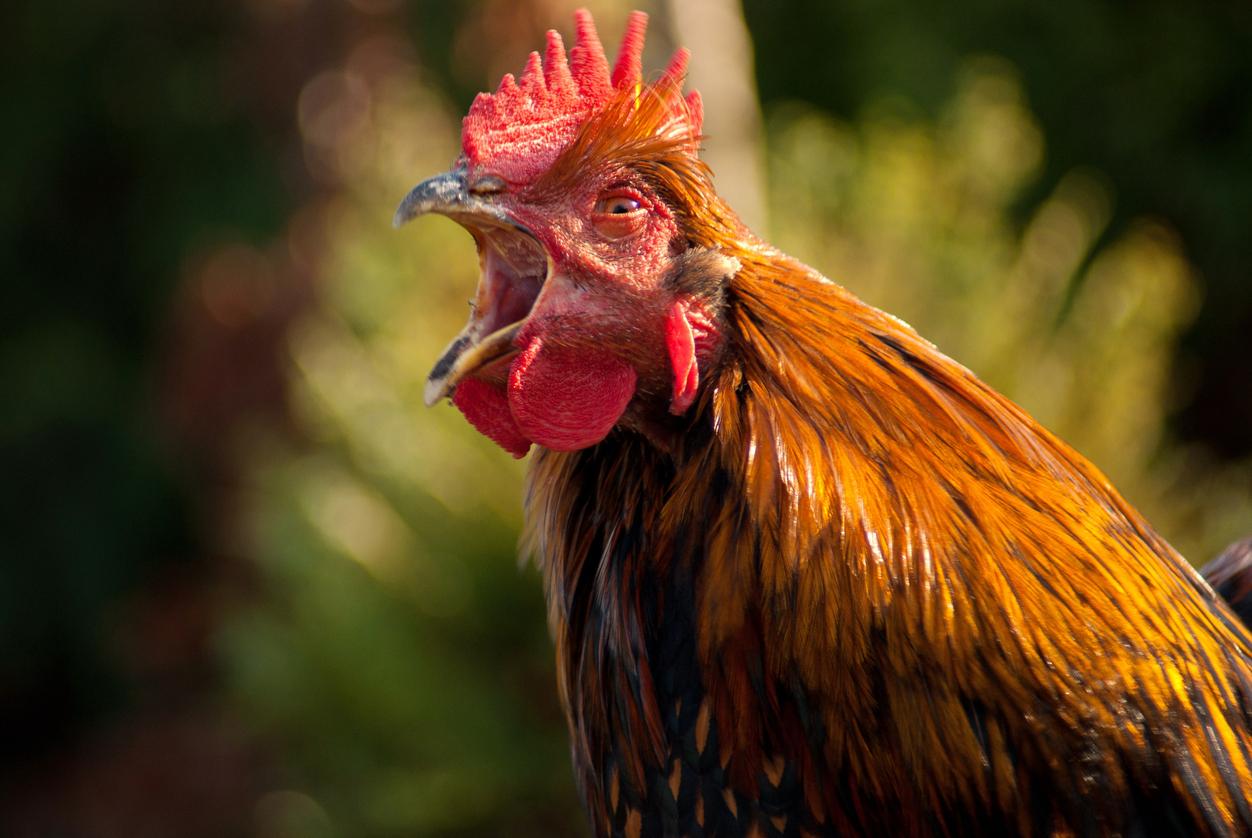
EarthSky notes that roosters may also be crowing to warn other roosters who might be infringing upon their territory.
Additionally, one rooster crowing might beget other roosters crowing, too, per BackYard Chickens. So if you are a property owner and your roosters are unexpectedly crowing in a chorus, be sure there isn't a fight impending rather than a friendly game of who can crow the loudest.
Roosters crow to signal excitement, too.
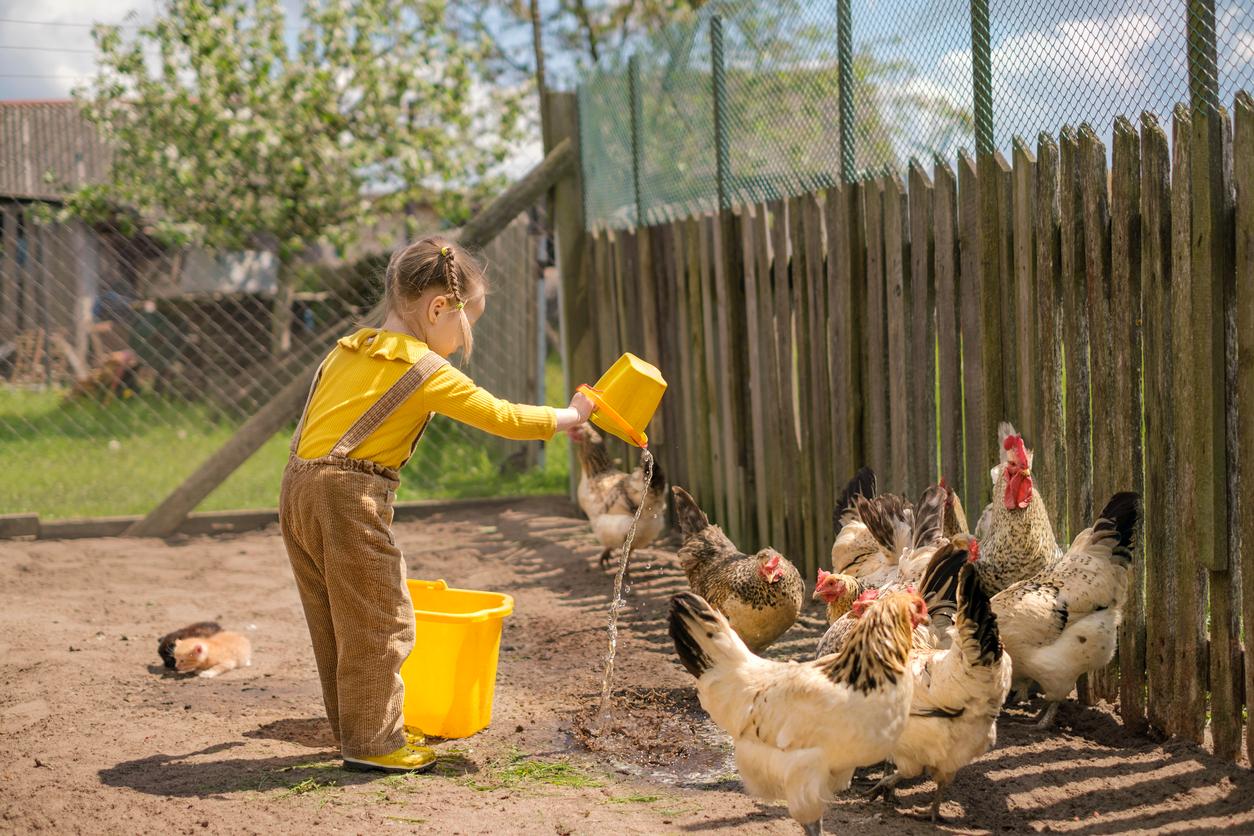
Per The Open Sanctuary Project, roosters don't only crow to signal danger or warn other roosters through a display of dominance. In fact, if the rooster has a safe relationship with a caregiver, the rooster may crow when a loving caregiver approaches.
Additionally, a rooster's crow may indicate excitement and celebration after the successful courtship of a hen.